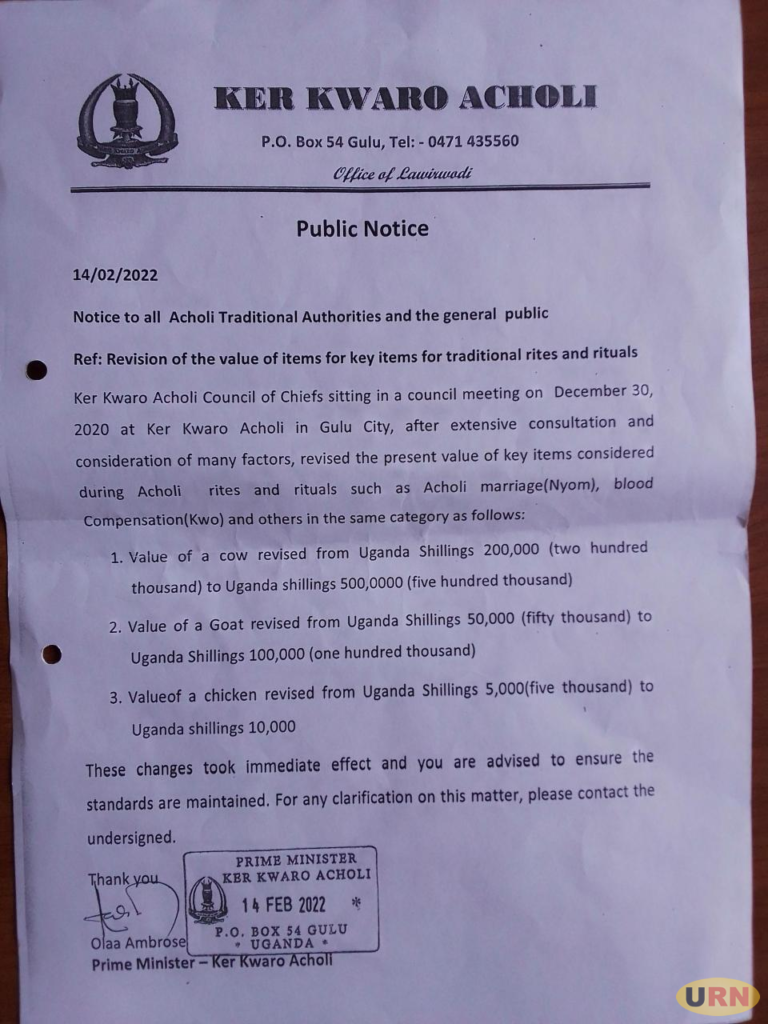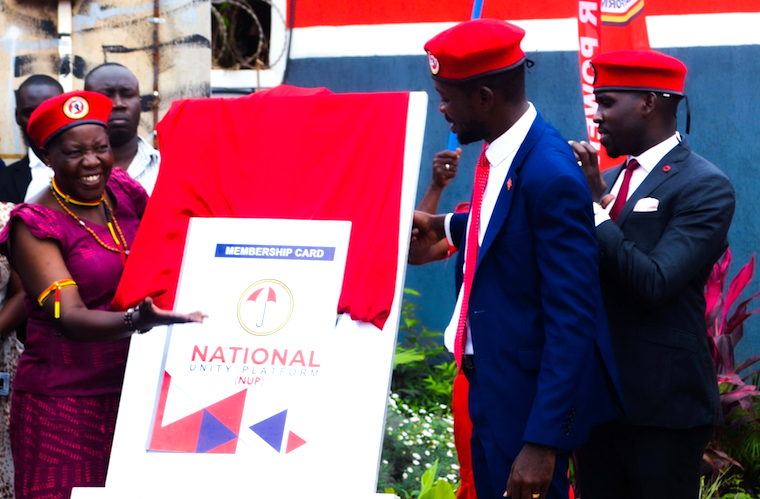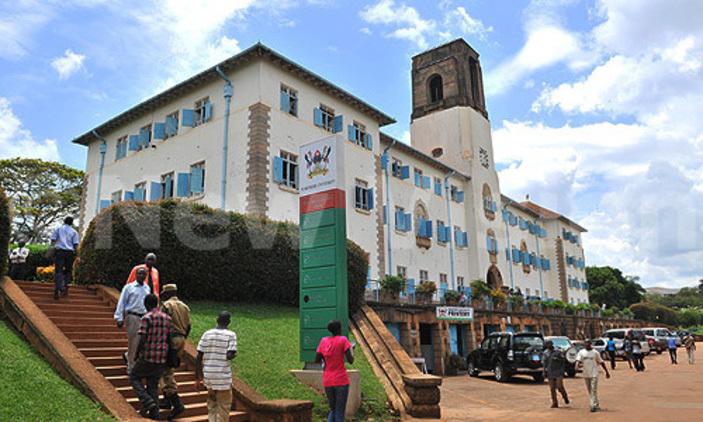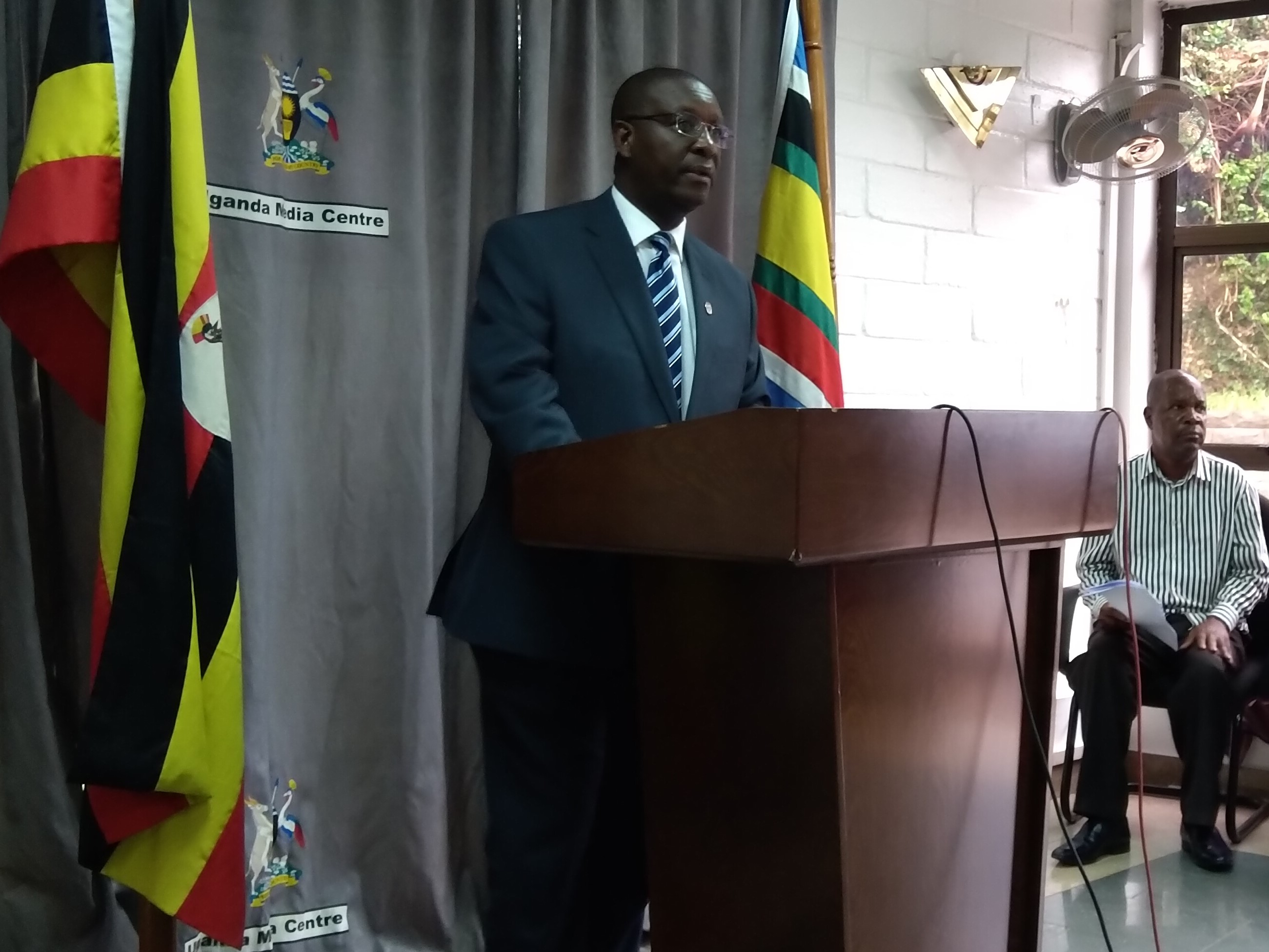Acholi Cultural Institution has started publicizing the new maximum bride price for traditional marriage in Acholi.
The institution says it came up with the maximum price ceiling for traditional marriage in Acholi, following complaints from intending grooms about the high bride price.
Alex Oyet, the Coordinator of Acholi Cultural Institution in East Acholi, says some parents were demanding as much as 30 Million or even 50 million shillings, which he says was discouraging many men from getting married.
Oyet says since 2018, the institution was having meetings and consulting their subjects on a bride price ceiling, and in February this year, the institution started promoting the list of items needed for traditional marriage and their prices, and the amount in cash a man has to pay in dowry.
According to the document, the price of a cow is from 200,000 shillings to 500,000 shillings, and a goat has also been increased from 50,000 shillings to 100,000 shillings.
While chicken, spear, and a bundle of tobacco leaves are all pieced at 10,000 shillings, plus 5 million shillings in cash.
If a man intends to bring the bride price in kind, they are expected to pay 5 million in cash, nine goats, and six cows.

Oyet says although the document containing the price list is still being worked on, the summary which has been distributed to parishes and clan chiefs to start using also applies to blood compensation, locally known as culu kwo.
Oyet says the price list was arrived at after a series of discussions by the council of chiefs at the cultural institution in 2018.
He explains that the high bride price had caused a lot of separation among couples and was making women produce children with more than one man, making them lose respect.
However, some clan leaders say there is a need to consult the locals more, after getting complaints from their locals.
George Obol Otira the chief of Padibe clan in Lamwo district, says although the Acholi chiefs had meetings on fixing a maximum bride price, the matter was not concluded after they got objections from the community.
Obita says after consulting his people, about 60 percent of his subjects said the 5 million shillings is very low based on how much they spent educating their children.
According to Obita, for years, many people had gotten dowry higher than the 5 million thresholds, and the ceiling resolved by the cultural institution seems like a drastic cut.
According to Obita the last meeting on the bride price ceiling was at the end of last year, and the issue had not been concluded. He thinks it is important that the subjects are consulted more so that the dowry ceiling is accepted by the majority.
Faustino Owor, the clan head of the fifteen clans in Agago district, says his subjects, especially the girls who are career women are also against the 5 million shillings set by Acholi Cultural Institution.
According to Owor, the 5 million shillings should apply to girls who did not go far with their studies, not the well-read.
George Onono, the Prime Minister of the Payira clan in Pader district reveals that their clan is still working on their constitution, and had not studied the resolution of the Cultural Institution.
Onono says they might not adopt the maximum price set by the cultural institution in its entirety, but use it as a guide to set their dowry slightly above the 5 million mark.
Alexis Ocaya, a resident of Kitgum municipality, says the price set by the cultural institution can also serve well and uniformly in times of blood compensation, but not marriage.
“A woman who is highly educated brings value to her home, so it is appropriate that her parents are appreciated with a higher dowry. Besides, officials at the Acholi cultural institution will not be present in every marriage event to confirm whether their rate is being used,” Ocaya says.
















